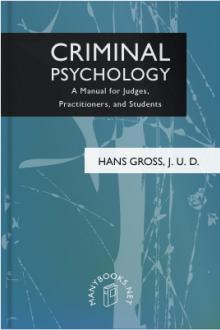Genre Other. Page - 358

very dress might serve as a pall for your coffin.
And I felt life rising within me like a subterranean lake, expanding and overflowing; my blood leaped fiercely through my arteries; my long-restrained youth suddenly burst into active being, like the aloe which blooms but once in a hundred years, and then bursts into blossom with a clap of thunder.
What could I do in order to see Clarimonde once more? I had no pretext to offer for desiring to leave the seminary, not knowing any person in the city. I would not even be able to remain there but a short time, and was only waiting my assignment to the curacy which I must thereafter occupy. I tried to remove the bars of the window; but it was at a fearful height from the ground, and I found that as I had no ladder it would be useless to think of escaping thus. And, furthermore, I could descend thence only by night in any event, and afterward how should I be able to find my way through the inextricable labyrinth of streets? All these difficulties, which

however, that this thought did not occur to me until the following day removes any possible right to a claim to heroism to which the narration of this episode might possibly otherwise entitle me.
I do not believe that I am made of the stuff which constitutes heroes, because, in all of the hundreds of instances that my voluntary acts have placed me face to face with death, I cannot recall a single one where any alternative step to that I took occurred to me until many hours later. My mind is evidently so constituted that I am subconsciously forced into the path of duty without recourse to tiresome mental processes. However that may be, I have never regretted that cowardice is not optional with me.
In this instance I was, of course, positive that Powell was the center of attraction, but whether I thought or acted first I do not know, but within an instant from the moment the scene broke upon my view I had whipped out my revolvers and was charging down upon the entire army of warriors, shooting

ERVATION PROVES THE EXISTENCE OF A PSYCHIC WORLD,as real as the world known to our physical senses.
``And now, because the soul acts at a distance by some power that belongsto it, are we authorized to conclude that it exists as something real,and that it is not the result of functions of the brain?
``Does light really exist?
``Does heat exist?
``Does sound exist?
``No.
``They are only manifestations produced by movement.
``What we call light is a sensation produced upon our optic nerveby the vibrations of ether, comprising between 400 and 756 trillionsper second, undulations that are themselves very obscure.
``What we call heat is a sensation produced by vibrations between 350and and{sic} 600 trillions.
``The sun lights up space, as much at midnight as at midday.Its temperature is nearly 270 degrees below zero.
``What we call sound is a sensation produced upon our auditory nerveby silent vibrations of the air, themselves comprising between 32,000and 36,000 a second.

this truth opens up a vast field for re-examination. It means that we must study all the possible data that can be causes of crime,--the man's heredity, the man's physical and moral <p vii> make-up, his emotional temperament, the surroundings of his youth, his present home, and other conditions,--all the influencing circumstances. And it means that the effect of different methods of treatment, old or new, for different kinds of men and of causes, must be studied, experimented, and compared. Only in this way can accurate knowledge be reached, and new efficient measures be adopted.
All this has been going on in Europe for forty years past, and in limited fields in this country. All the branches of science that can help have been working,--anthropology, medicine, psychology, economics, sociology, philanthropy, penology. The law alone has abstained. The science of law is the one to be served by all this. But the public in general and the legal profession in particular have remained either ignorant of

frequently of a hundred times, more labour than the greater part of those who work ; yet the produce of the whole labour of the society is so great, that all are often abundantly supplied ; and a workman, even of the lowest and poorest order, if he is frugal and industrious, may enjoy a greater share of the necessaries and conveniencies of life than it is possible for any savage to acquire.
The causes of this improvement in the productive powers of labour, and the order according to which its produce is naturally distributed among the different ranks and conditions of men in the society, make the subject of the first book of this Inquiry.
Whatever be the actual state of the skill, dexterity, and judgment, with which labour is applied in any nation, the abundance or scantiness of its annual supply must depend, during the continuance of that state, upon the proportion between the number of those who are annually employed in useful labour, and that of those who are not so employed. The number of us

.
Gurney: What was the face value of the policy?
Gorham: One thousand dollars.
Gurney: Do you know how much money Morlock owed at the time of his wife's death?
Gorham: Certainly not.
Gurney: But you do know that he was heavily in debt and that he was being hounded by his creditors.
* * *
The Commonwealth of Massachusetts vs. Alvin Morlock. Direct testimony of George Gorham.
It was only half-past two when Morlock stopped in front of the immaculately gleaming facade of the appliance store. Embarrassment and shame waited for him in the building, and he hesitated before he entered. He had been here once before when Lolly had picked out a television set and a refrigerator and a stove. In that order, he remembered wryly. And the largest television set, the smallest refrigerator and stove.
He shook his head silently at the clerk who came to meet him and walked toward the back of the store where a green neon script sign marked the credit departme

THE HOUSE OF FAME
TROILUS AND CRESSIDA
CHAUCER'S DREAM [1]
THE PROLOGUE TO THE LEGEND OF GOOD WOMEN
CHAUCER'S A.B.C.
MISCELLANEOUS POEMS
Transcriber's Note.
- Modern scholars believe that Chaucer was not the author ofthese poems.
PREFACE.
THE object of this volume is to place before the general readerour two early poetic masterpieces -- The Canterbury Tales andThe Faerie Queen; to do so in a way that will render their"popular perusal" easy in a time of little leisure and unboundedtemptations to intellectual languor; and, on the same conditions,to present a liberal and fairly representative selection from theless important and familiar poems of Chaucer and Spenser.There is, it may be said at the outset, peculiar advantage andpropriety in placing the two poets side by side in the mannernow attempted for the first time. Although two

he truth. Let me go, you don't understand what will happen. My brothers-"
The Lord Cleric punched her. Her head flew back and a spray of blood wet the dry mud and spattered over the leaves concealing me. Face wet with tears and whimpering, she tried to crawl toward the trees and dragged up clumps of earth with her fingernails.
"You must let me go." The words sounded muffled, like she had a mouthful of something foul.
The Lord Cleric executed a neat half turn and stamped on her thigh. There was a sharp snap, like I'd picked up a twig and yanked on the ends until the fibers split apart and cracked open. The fairy's leg buckled into an unnatural shape and she screamed. The sound was guttural, a direct translation of pain to sound. I slapped a hand over my mouth to smother my own shriek. Not because of the broken bone, I'd seen and heard tons of those, but because I'd caught the Lord Clerics profile and recognized the handsome face. The Lord Cleric dragged the fairy back into the centre of th

hey reachtheir fifteenth year. Then they go to work.In the Home of the Students we arose whenthe big bell rang in the tower and we wentto our beds when it rang again. Before weremoved our garments, we stood in thegreat sleeping hall, and we raised our rightarms, and we said all together with thethree Teachers at the head:
"We are nothing. Mankind is all. By the graceof our brothers are we allowed our lives.We exist through, by and for our brotherswho are the State. Amen."
Then we slept. The sleeping halls were whiteand clean and bare of all things save one hundred beds.
We, Equality 7-2521, were not happy inthose years in the Home of the Students.It was not that the learning was too hardfor us. It was that the learning was too easy.This is a great sin, to be born with ahead which is too quick. It is not goodto be different from our brothers, but itis evil to be superior to them. The Teacherstold us so, and they frowned when they looked upon us.
So we fought against thi

teness implies all give and little or no return, it is well to recall Coleridge's definition of a gentleman: "We feel the gentlemanly character present with us," he said, "whenever, under all circumstances of social intercourse, the trivial, not less than the important, through the whole detail of his manners and deportment, and with the ease of a habit, a person shows respect to others in such a way as at the same time implies, in his own feelings, and habitually, an assured anticipation of reciprocal respect from them to himself. In short, the gentlemanly character arises out of the feeling of equality acting as a habit, yet flexible to the varieties of rank, and modified without being disturbed or superseded by them." Definitions of a gentleman are numerous, and some of them famous; but we do not find such copiousness for choice in definitions of a lady. Perhaps it has been understood all along that the admirable and just characteristics of a gentleman should of necessity be those also of a lady, with the